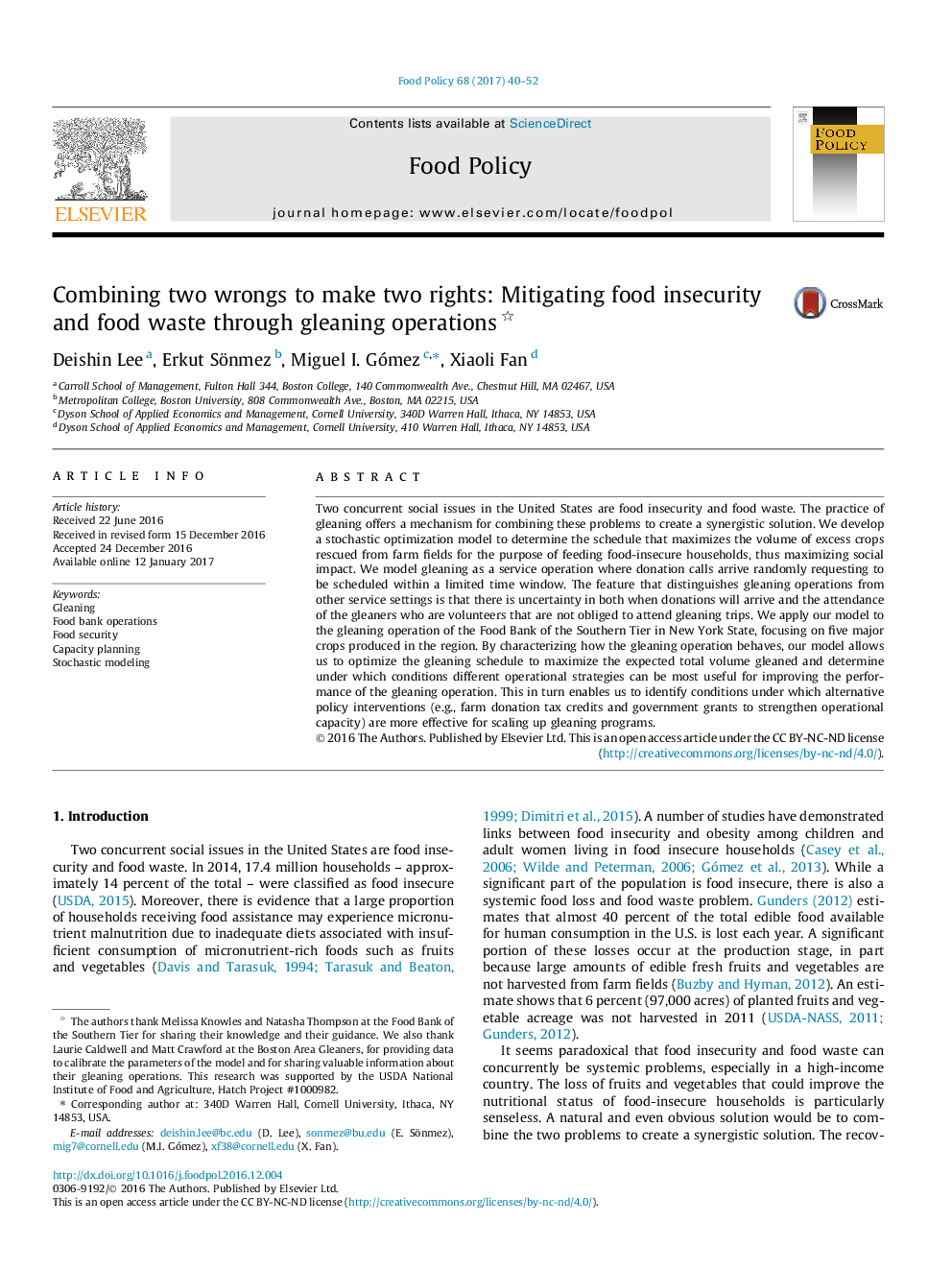ترجمه فارسی عنوان مقاله
ترکیب دو اشتباه برای ایجاد دو حقوق: کاهش خطر ناامنی غذایی و زباله های مواد غذایی از طریق عملیات خالی کردن
عنوان انگلیسی
Combining two wrongs to make two rights: Mitigating food insecurity and food waste through gleaning operations
| کد مقاله | سال انتشار | تعداد صفحات مقاله انگلیسی |
|---|---|---|
| 142714 | 2017 | 13 صفحه PDF |
منبع

Publisher : Elsevier - Science Direct (الزویر - ساینس دایرکت)
Journal : Food Policy, Volume 68, April 2017, Pages 40-52
ترجمه کلمات کلیدی
تمیز کردن، عملیات بانکی مواد غذایی، امنیت غذایی، برنامه ریزی ظرفیت، مدل سازی تصادفی،
کلمات کلیدی انگلیسی
Gleaning; Food bank operations; Food security; Capacity planning; Stochastic modeling;

